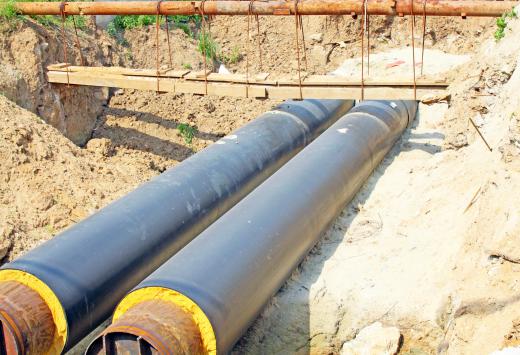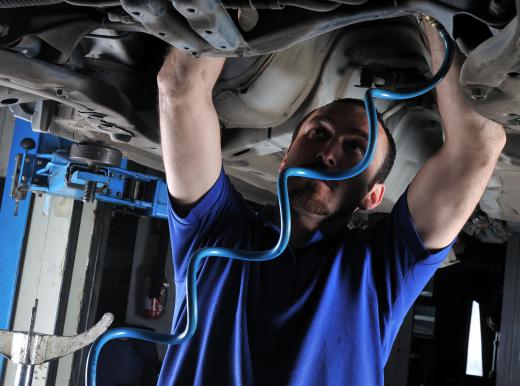Quick couplers are connectors that enable fast, easy connections of two items without having to screw them together. Also called quick disconnects, quick couplers have many applications, such as connecting propane tanks to outdoor grills. Couplers can be straight fittings, used to connect one item, or Y-fittings, used to connect two items.
Couplers generally are made from one of four metals: brass, steel, aluminum or stainless steel. It's operated by pulling back a fitting on the female end and pushing it onto the male end of a pneumatic hose or tool. The fitting is then released to complete the connection, allowing air or fluid to flow freely. When the coupling is disconnected, ball bearings inside the female end form a seal so fluid or air is not released.

Tools that use compressed air often have quick couplers on their base. This enables switching between tools without loss of compression. If compression is lost, as can happen with tools needing to be screwed on, the air compressor would need time to rebuild pressure. When changing tools often, this could lead to much more time needed to complete a job.

Another use of quick couplers helps to ensure safety. These can be found on items containing refrigerants, such as refrigerators, freezers and air conditioning system in vehicles. Couplers help prevent refrigerants from escaping, which can be dangerous if sprayed into a person's eyes. The Environment Protection Agency (EPA) also discourages the release of refrigerants into the air as they increase fluorocarbons and deteriorate air quality.
Aircraft fuel tanks also use quick couplers as a safety measure. Fuel for aircraft use is extremely combustible; a quick connect prevents its escape into the atmosphere. This measure prevents accidental fires and keeps fumes from being breathed by the person fueling the plane. This type of coupler is screwed onto the tank with only a quarter turn to form an airtight seal, then a valve is opened to release fuel into the aircraft.
Quick couplings can be used in irrigation applications to carry water through a hose to water gardens, plants and lawns. A water hose may be left on at all times, filled with water and ready to spray. The water will exit the hose when the quick coupler is engaged by a sprinkler or other hose attachment.
A gas grill also may use a quick coupler to obtain gas from either a natural gas line or a propane tank. The coupling is attached to the fitting on the grill and hand tightened before opening the valve on the top of the propane tank. This process helps keep gas from being released into the air when changing tanks.
